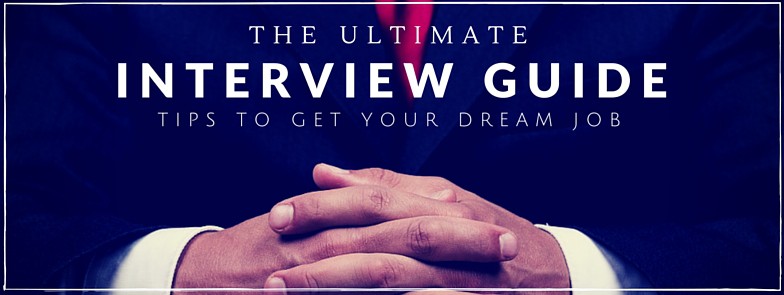 The job interview.
The job interview.
It is the great equalizer when it comes to getting your dream job. It levels the playing field because you get to put passion and personality behind the bullet points on your resume. Companies hire people, they don't hire resumes, and interviews are how they separate the best performers from the best resume wordsmiths.
What if your interviewing skills aren't as good as your technicals skills? Fortunately, interviewing is a skill and with a healthy dose of practice and prep, you can wipe away that fear, anxiety, and nervousness.
Preparation is important because it ensures you're able to communicate your skills, experiences, and abilities to the interviewer. It makes the process of discovery easier, smoother, and less stressful – all it takes is careful study and time.
This Ultimate Job Interview Guide will walk you through, step-by-step, everything you will need to do to be your best in an interview and get the job for you.
Table of Contents:
- Your frame of mind
- Clean up social media
- Getting the interview
- Winning the job fair
- Interview practice and training (with tips for body language)
- Lessons from media training
- On tattoos
- Tips for phone interviews
- Tips for Skype interviews
- Tips for 1st in-person interview
- After the interview
- 10 Most Common Interview Questions (And How to Answer Them)
- Tips for 2nd round / site interview
- After acceptance or rejection
A few things to keep in mind throughout the process:
-
- Be yourself but sell yourself.
An interview is a way for you to showcase your abilities while showcasing yourself as a person. You may find it difficult to sell yourself, to “brag” about your accomplishments, but you need to talk about the things you've done because otherwise, the interviewer won't know. You don't need to puff up your chest or provide a laundry list of accomplishments but don't keep them to yourself. - The interviewer is not your adversary.
The interviewer is not the enemy – he or she is not looking to trick you into saying the wrong thing and then screaming “gotcha!” They're trying to determine, to the best of their ability, whether you have the skills for the job and are a fit for the culture of the company. You shouldn't treat the person like your best friend but be friendly and build a rapport, they're not out to get you. My friend Matt, who recently went through a job search, explained that it's important that “the interviewer should ‘like' you as well as know you are qualified because they may have to work with you every day. You can't just be robotic but show you have the balance of fun at work but that you are also driven and a great addition.” — you can't do this if you see them as an adversary. - You are interviewing the company too.
How many times have you heard of someone taking a job they hate? Sometimes we have no choice, you take the job to get paid and pay the bills. When you have options, you want to be more discerning. You want to interview the company as well. It's a matter of finding a good fit, not just finding a well-paying job. Keep this in mind because they have to sell you on their company too. - Be yourself, the best version of yourself.
You may think you know what the interviewer wants and you want the job, so there's a temptation to be that person if you're not. Don't. Be the best version of yourself so that the person they want to hire matches the person you are. - Have a narrative/story.
Your career arc tells a story, be well versed in it and able to explain the different parts of your life, your professional history, as well as the skills. People tend to remember stories more than a listing of facts and figures, so tie your life's work together into a narrative that the interviewer can easily digest and remember. - Focus on what's important — you.
In an interview, the interviewer is trying to find the best candidate who will fill this function and solve their problems. What you wear, the exact words you use in your answers, and your haircut are important but secondary. If you can demonstrate you are the best candidate, have the right work experience and interpersonal skills, your suit, and your haircut won't matter. You can't show up in a t-shirt and ripped jeans (that conveys a lack of professionalism, which may signal that you aren't the best candidate), you gain no benefit by obsessing over your clothing. - The interviewer isn't always good at interviewing.
As you progress with a company and are interviewed by more people, recognize that most interviewers are not good at interviewing. That's just not one of their core competencies. The ones from HR will have done it before but if you progress to technical interviews, you may be speaking with someone who does a few interviews a year. - Get a good night's sleep!
Being fresh and sharp are critical. Make sure you don't stay out too late the night before an interview.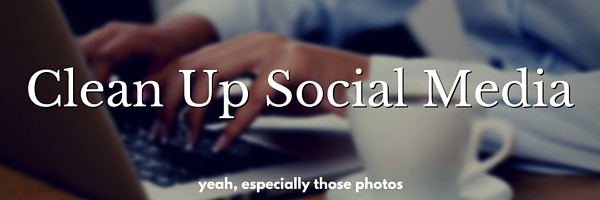
We all do stupid things, just don't make it easy for a hiring manager to find it. 🙂
- Get a “professional” headshot and use it as your profile photo.
You don't need to go to a pro but try to get a photo from the collarbone and up. Dress in a collared shirt or polo, make sure it's clear, in focus, with a neutral background. Wear whatever you think would be appropriate at a weekend party with your future co-workers. Use it as your profile on all accounts – Facebook, Twitter, Linkedin, IG, Snapchat, etc. - Edit your profile description.
Keep it brief, positive and to the point of who you are as a professional. Use spellcheck and grammar check! Or leave it blank. - Google your name.
See anything you dislike? If you can control what it is (like a photo or status update) and you want to take it down, take it down. Clean up whatever you can and go to at least the fifth page of Google results. - Clean up your photos.
Delete the ones you wouldn't want an employer to see, even if the ones that don't even include you in any way. If you want to know what DQ's people, it's inappropriate/provocative images and those that show you drinking or using drugs. - Privatize social media.
An employer who searches for you on social media will look at photos and status updates if your profile is public. They will not ask you to make it public if you've made it private. I think the move here is obvious – make it private if you can. Here are the instructions for Facebook, Twitter, Instagram, and Snapchat. - Update your LinkedIn profile.
Update your LinkedIn profile so it matches your resume (and vice versa). Recruiters and employers use LinkedIn quite a bit and so you'll want to make sure it's up to date. LinkedIn for Students is a great resource for learning more. William Hill, Assistant Dean at Monmouth University's Career Center, suggests, “Become a LinkedIn power user. There has never been a more powerful tool to allow you to connect so quickly with so many people anywhere in the world.” - Delete the accounts.
If you are worried and don't care about the accounts, delete them. Or you care that they might project you in the wrong light and you don't want to risk it, delete them.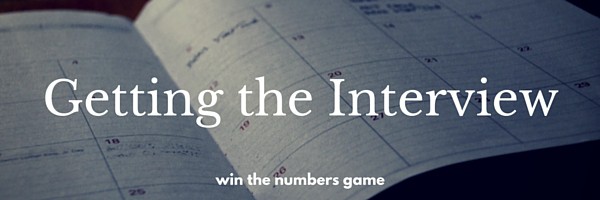
- It's a numbers game, unfortunately, so play it. Finding a job is like dating, you will need to apply for a lot of jobs, some of which you may be over- or under-qualified for; to find the right one for you. This means that you will be rejected A LOT… but that's OK (some experts say you only get interviewed for 1 out of every 10 jobs you apply for!). You can be rejected for a lot of different reasons, many of which have nothing to do with you, so not getting a call does not mean you're bad. (average unemployment period is ~27 weeks — that's more than six months — it takes time)While it is a numbers game, you can improve your odds by standing out.
- Find an inside man (or woman).
The majority of open jobs are filled by candidates who already knew someone at the company (one estimate puts it at 80%). This highlights the importance of networking because that personal connection elevates a candidate above the list of resume blasters. - Use the informational interview.
If you can't find a company insider, use an informational interview (coined by Richard Nelson Bolles, author of What Color Is Your Parachute?) as a networking tool. An informational interview isn't a job interview, it's where you interview an employee to learn more about that career, the skills they need to perform at a high level, the company, etc. In these interviews, you will also have an opportunity to share your own experiences and expertise – which may lead to a fit with an unadvertised company need (many call this the “hidden job market”). It's a win-win for both sides. Here's a good tutorial on the subject. - Meet the hiring manager.
Once you have a job in mind, the listing will often include the hiring manager. Try to connect with him or her on Linkedin and introduce yourself. If there's a way for you to meet the hiring manager in person, try to. Meeting someone in person and shaking their hand can leave a lasting impression and shows initiative. Just don't show up at their house… that's too much initiative. - Tailor your resume to the job.
It's easy to take your standard resume and send it to every job. You can make it stand out by tailoring your resume to the job by highlighting different areas of expertise. This can include editing the objecting, removing irrelevant skills, expanding job descriptions for relevant roles, and other tweaks that highlight your fit. You don't need to tailor the resume for each job, you can categorize them and tailor your resume to a category (if you do, try to mirror the language used in the job description). - Schedule interviews on Tuesday at 10:30 AM.
An Accountemps survey from 2008 showed that the best time for an interview is on Tuesday at 10:30 AM. Mondays and Fridays are bad because people are either catching up from the weekend or shutting down for the weekend. The same applies for early in the day and later on in the day. Around lunch is bad because people are hungry and impatient. That leaves mid-morning (10:30 am) or mid-afternoon. If you can pick your time, pick then.
- This is the first interview.
It might not feel like it but this interaction, where you walk up to an employer's booth, greet the employee and hand them a resume; this is your first interview. Make an impression here and you'll be more than another resume on the pile.When I recruited at my alma mater, Carnegie Mellon, we would take the stack of resumes and filter them for the candidates we liked. Then we would go through and the employee who met this student would say whether or not there was anything notable about this person (or if they remembered them at all). The students that left a positive memory were shifted to the top of the pile. It didn't grant you any special treatment but being at the top is better than being at the bottom. - Pre-job fair preparation.
Get a list of the employers attending and find the ones that are the best fit for you based on the types of jobs available at the company. List them in priority order and then locate them on the map, you'll want to visit your highest priority booths first while you're still fresh. The 20th hand you shake won't be as memorable as the first. - You may be given a screening interview.
If things go well, one of the employees may pull you aside and start asking you a few pre-screening questions – similar to what you'd get in a phone interview. This is a good thing, it means you've already risen above the general population in the room, but it's only good if you nail it. Be prepared for a screening interview so you can take advantage of this opportunity. - Don't wait in line.
Unless it's near the end of the day. Try to find booths where the lines are shorter, the time you spend waiting to talk to someone is time you're not making an impression and learning more about a company. If it's near the end of the day or it's one of the last companies you'll talk to, then waiting isn't a problem. - Bring a portfolio/briefcase/messenger bag to carry things.
Make sure you have enough copies of your resume, any other supporting materials, and pen and paper. Put them in a portfolio so you're carrying that and not a stack of papers. - Get business cards from everyone you talk to.
They act as reminders of who you met and gives you a direct way to contact them. After your chat, jot down a few notes on the back of the card to jog your memory about the talk and remember key details. More information is better and don't rush this step! By the end of the fair, you'll have met a lot of people and it'll be hard to remember, these notes will help. - Circle back at the end of the day.
If you spoke with someone earlier in the day, make sure to stop back at the end and thank them. This is akin to writing a thank you note after an interview. Re-introduce yourself (“Hi again, it's Jim, I just wanted to say thank you for the time earlier, I enjoyed learning about …” – leaves them with one last favorable memory.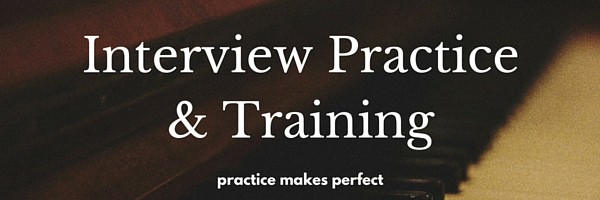
There are four “levels” of practice:
- Practice in the mirror.
You have your answers to commonly asked questions, right? Practice with a mirror or, even better, record yourself answering and study the video. Look at everything from your body language (your body language can even shape your demeanor – more body language later) to the words you say. Catch those “ums” and “ahs” or other little things you do that you don't realize (a few ums and ahs aren't a big deal, but one every other word is something to work on). Athletes watch film to get better, you can do the same. - Now show the video to a friend, ask for feedback.
This might make you cringe… but show that video to a friend and ask them to leave you feedback. If necessary, send it to ten friends and give them an anonymous form to fill out so they feel the pressure to be nice and avoid hurting your feelings. You need honest feedback and visibility into your blind spots or you won't improve – practice is about improvement. - Practice interviewing.
Next, get a friend you trust to interview you. Give them a list of common interview questions, make up a scenario, and go through the steps of being asked and answering questions you'll hear in a real interview. Get dressed up, suited and booted, and treat it as an actual interview. You won't be as nervous since it'll be a friend, but it will help you think about and practice your answers. Ask your friend for feedback and integrate it for the next level. - Practice mock interviews.
The next step is to take advantage of mock interviews if your university's career services department offers it. Again, get dressed up and treat it like a real interview. Be sure to ask for feedback and implement it. With these interviews, you're not trying to recite a memorized answer. You want to have a coherent answer, hitting on the points you want to make, without sounding like a robot. Don't memorize it. The benefit of working with Career Services is that they have done millions of these and can help you improve much faster than any other resource. - Practice live-fire interviews.
The next level is to practice with live fire interviews with real companies and real hiring managers. As you schedule interviews, take interviews with jobs you wouldn't accept if offered a position. This will give you the nervousness and excitement of a real interview but without the high stakes (you want to be invited to a 2nd round, but it's not the end of the world if you aren't). Once you feel comfortable in interviews, stop accepting interviews for practice purposes only. While practicing the interview… - Know your resume inside and out.
Refine and polish your resume as well as your knowledge of it. A resume's job isn't complete once you get the interview, you'll be asked about it and make sure you know it well. Knowing it well will give you confidence in the interview. - Craft an elevator pitch.
An elevator pitch is a short 30-second description of who you are, what you're passionate about, and why you are interested in the job. Most interviews will begin with some form of “tell me about yourself,” this is when the elevator pitch is delivered. It gives the interviewer a direction to take the interview and it lets you showcase yourself freely. - Know your “talking points.”
When politicians or CEOs go on television, they have their talking points. These are ideas they know they want to talk about and they make sure they touch on these talking points during an interview. You should have your own series of talking points ahead of time – applicable skills you've had, moments where you've excelled, or just some other highlight you want to make sure you don't overlook. - Answer using the STAR framework for story.
Some interviewers use the STAR interview approach, which asks you questions that you will answer with a story that follows this framework (they won't tell you that ahead of time, but you'll know what I mean once I explain STAR). STAR stands for Situation, Task, Actions, and Results:- Situation: The backstory – who, what, where, and when.
- Task: What were you expected to do.
- Actions: What did you actually do.
- Results: What was the end result, including tangible quantifiable results if available.
The beauty of this framework is that you can use it to explain how you overcame any challenge or “tell me about the time…” type of question.
- Research how the company conducts interviews
If you are interviewing with a big company, especially a big tech company, there are going to be plenty of blog posts out there explaining the exact recruitment process. The simplest way to find them is to search Google for “[company name] interviews” or “[company name] interview questions” or “[company name] interview process” – you will get a treasure trove of information. Sometimes you get lucky and you may find the entire process in one single blog post (like this one about the Amazon recruitment process and it's really good) or the company itself will tell you (like in this explanation by Google). If you don't find anything good, turn to sites like Quora and Glassdoor. You'll be surprised how much information is out there. - Think in bullet points, not full answers.
The goal of practice is to get your stories straight and your answers clear but not memorized. To that end, think about your talking points and answers in bullet point form – not in quotes or full sentences. Reciting an answer is obvious and people will tune out, or not believe you, but recreating those same answers using bullet points will be easier to remember and sound less robotic. - Write out your answers.
I know the previous suggestion was “think in bullet points,” but as you prepare your answers it's important to write them out and get an “ideal answer” ready in your head. You won't be married to the word for word answer but it should capture all the points you want to make. By writing it out ahead of time, you ensure your answer is complete. - Be positive.
No one likes a negative person. Don't trash talk people, don't speak badly of companies, and don't beat yourself up. You'll be asked about how you managed conflict or resolved an issue, avoid putting other people in a bad light and emphasize the resolution and outcome. The moment you go negative, that's the moment you get taken out of consideration. - Pay attention to your body language.
Nonverbal communication is very important during interviews because will use these cues to make decisions about you. One part of that is how you present yourself, which is why a suit and being well-groomed are so important, but body language is another. Here are some tips to keep in mind about your body language: - Remember the 7%-38%-55% Rule.
Albert Mehrabian, Professor Emeritus of Psychology from UCLA, believes 55% of communication is through body language. 38% through voice and tone, and just 7% on the spoken words alone. It's known as the 7%-38%-55% Rule. You can argue the various percentages but I think the relative numbers seem to concur with my personal experience. - Maintain eye contact.
Eye contact is strongly associated with honesty and confidence. People have trouble looking you in the eye if they're telling you a lie, or so the thought goes. If you need a rule for how much eye contact, aim for 60-70% eye contact. Don't stare at the interviewer, you don't want more than 70%, but don't look down at the floor the whole time. If you find it hard to focus while maintaining eye contact, look at different parts of the face – they won't know. (in group interviews, make sure to make eye contact with each person — it shows respect) - Mirror the interviewer.
It's a great unconscious way to build trust with someone – try to mirror their body language. - Maintain good posture.
Don't slouch, try to avoid leaning too far forward or leaning back, and try to maintain a good posture throughout the interview. The best way to do this is to sit back on the seat and with your back straight against the chair. - It's OK to use hand gestures…
… but keep them above the table and below your collarbone. Don't keep your hands hidden. - Avoid touching your face, your hair, fidgeting, etc.
- Smile!
It's good for you, it's good for them, it's good for the world. - Don't read this as a checklist.
Lastly, do what comes naturally and adjust it a little bit based on these rules. If you find that you play with your hair a lot, try to stop yourself when you practice. Hard to keep eye contact? Practice with a mirror (it's really hard to look at yourself in the eyes and answer a question!). Don't try to remember these in the interview room itself!Remember, your body language shapes your mind:While preparing for a specific interview with a company… - Study the company inside and out.
Remember, the interview is a time for you to demonstrate you're serious and a serious candidate would research the company he's hoping to join. Learn everything you can about the company history, its culture (this is why useful and important to know an insider), as well as its recent history. If they are public, reading their annual report at a minimum (even if it's just the first few summary pages) and their financial statements for bonus points. Any recent news about the company and its industry can help you come up with good questions and be informed. - Research the interviewer.
Use tools like Linkedin to learn about the person who will be interviewing you to find areas of common ground you can tap into. This person could be a future co-worker so learning what department they're in or what roles they've held can be useful. - Build your list of references.
Each job interview will call for a different set of applicable references. Build that list now and tell those people that they may be called upon to provide a reference. If you are currently employed and looking for a new job, or perhaps an offer to bring back to your current company, avoid listing existing employees as references, even if they are your best friend (don't put them in that position).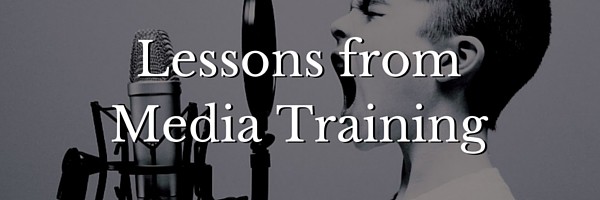
Ever see those talking heads on TV speaking about “[insert topic here]” — many times those people have gone through media training. When you think about it, speaking to the media is a lot like interviews… except instead of an audience of 1 you have an audience of 1 million+. “Craft an elevator pitch” and “Remember talking points” are all media training ideas – here are some more:
- Don't over-answer.
When answering a question, don't go beyond what the interviewer has asked you and volunteer other things UNLESS it's a talking point you want to make sure you hit. For example, if you're sharing a story about a particular challenge and there was significant fall out afterward, you can just share that the ending was unfortunate and not going into painful detail about how you and someone never spoke ever again for the rest of your lives. - It's OK to not know an answer.
Sometimes you will get asked a question to which you don't know the answer. It's OK to say you don't know but that you can check and get back with them. You can always follow up later. - Don't get mired in details.
When retelling stories using the STAR method, you'll want to put as many quantitative numbers as possible. Results with numbers are not only more believable, but they also help put that story in context and scope. While you should have your numbers rehearsed and remembered, don't get stuck if you forget if you improved a process by 25% or 30%. A ballpark is fine. - Flag and summarize important ideas
As you tell stories, you will be sharing a lot of information and it's not uncommon for an interviewer to be caught up in the story (especially if you are engaging) or not fully appreciate the situation to be able to know what's important (especially if it's a story about a technical challenge and you're speaking to HR). You'll want to flag important ideas by explicitly saying so (“the biggest challenge was XYZ” or “the greatest success was”). You will also want to summarize important points at the end too.On Tattoos
I've received a few emails on the subject of tattoos and as someone without any, I failed to recognize how significant an issue this was. Should I disclose them, should I hide them, can an interviewer ask about them, can I be rejected because I have one, can I be fired for getting one… the list of questions is long and what you should do is not intuitive.
This is why I took the most common ones and posed them to Professor Stephen Allred, University Professor at the University of Richmond with a specialty in employment law. He's done quite a bit of research in the area from the employer side (such as this paper from 2016 titled “Rejecting the Tattooed Applicant, Disciplining the Tattooed Employee: What Are the Risks?“) and I posed a few questions to him given his experience.

Professor Stephen Allred, University Professor at the Richmond School of Law Q. Is it legal for companies to reject a candidate on the basis of a tattoo?
Professor Allred: The short answer is yes. Absent a showing that the candidate’s tattoo was a manifestation of a religious belief protected under Title VII of the Civil Rights Act of 1964, the candidate will have a hard time challenging an employer’s decision to reject him or her because of a tattoo. And even if the candidate showed that the tattoo was a manifestation of a religious belief, the employer could still argue that it would create an undue hardship to accommodate the candidate at the workplace.
The best case to look at on this issue is EEOC v. Red Robin Gourmet Burgers Inc., 2005 WL 2090677 (W.D. Wash. 2005). There, the employee (not an applicant) successfully argued that his wrist tattoos were a manifestation of his religion (Kemeticism) and that since he had been working at the Red Robin as a waiter for six months without any customer complaints, the employer had no right to order him to cover up his tattoos.
There are some other cases involving public employers where public employees (firefighters, police officers, public hospital nurses) have argued that they were fired in violation of their right to free speech or equal protection under the 1st or 14th Amendments, but these cases have seldom produced a win for the plaintiff employee.
Q. If you do have tattoos, do you recommend doing anything (like covering them up) before an interview?
It depends on what the tattoos are, and who the employer is.
I imagine that a lot of businesses would frown on hiring someone with a prominent Confederate flag tattoo on the back of his forearm, for example. On the other hand, there’s a lot of restaurants in Richmond and elsewhere where tattoos are common among servers, and folks don’t seem to make a big deal out of it.
But let’s take your question one step further and say that an applicant covers a tattoo that some would find offensive during his interview, and then gets the job. There’s nothing to prevent the employer from then turning around and dismissing the employee once the boss sees the offensive tattoo (subject, of course to the caveat I mentioned in question 1).
Q. What if the tattoo wasn't offensive (or even worrisome), as a matter of practice should applicants cover-up tattoos to avoid the subject entirely or is it not a big issue?
Good question and I don't think there's a clear answer. Out of an abundance of caution, though, if the candidate thinks the people doing the interview might be put off by a tattoo, it might be good to cover it. Let's say it's a job as a receptionist at a law firm. The candidate might decide to keep her butterfly tattoo on her shoulder covered not only during the interview but also whenever she's at work. But this is more of a personal choice issue than a legal issue.
Q. Are companies permitted to ask about tattoos and their meaning? If they do, how should an applicant respond?
Again, generally yes. And the applicant should always respond truthfully.
While there is no clear answer on how you should proceed, it's clear that employers are free to hire or fire based on tattoos if they choose to as long as it's not a manifestation of a religious belief.
When you are interviewing for a job, your goal is to show that you are the best candidate for the job and that's often done through your words and your experience. If there's any chance that a tattoo could send the wrong message, it may make sense to leave it covered for the time being.
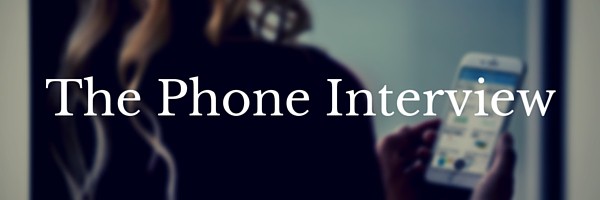
- This may be a screening/informational interview.
A screening interview, which isn't unlike a first in-person interview, is when the interviewer is seeing if you have the right qualifications for the job. Sometimes it's with a recruiter, not with the company itself, and not with a hiring manager. They want to make sure your resume is up to date, your skills match the need, and do all of this before scheduling an in-person interview. - Get dressed up.
It sounds counter-intuitive but gets dressed up because it puts you in the proper mindset. You'll feel more confident when you're dressed up, even if the other person won't see you, and the interviewer will be able to sense that over the phone.. - Have a glass of water ready.
When you're on the phone, you can have the luxury of a glass of water nearby if you get dry mouth. Just don't slurp on it because it may be off-putting. - Print out a cheat sheet but not a script.
Since the interview is over the phone, you might be tempted to print out a cheat sheet with common questions, answers, etc. If you have a cheat sheet, make sure it's high-level bullets and not a script. You want to answer naturally and sound dynamic, a script will be obvious. Listen to someone read a passage vs. speak normally and you can tell the difference. - Be aware of your surroundings.
Make sure you're in a quiet place without audio interruptions. And don't use speaker phone, it picks up too much ambient noise, echoes, and you might not come through clearly enough. Don't drive and interview. If you have no choice, pull to the side of the road. Be safe.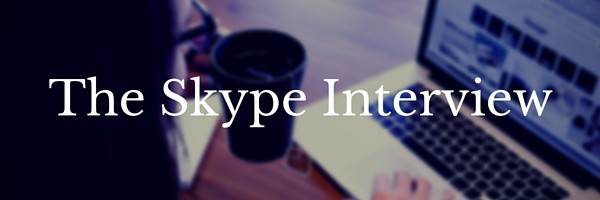
- Follow all the audio rules in the phone interview section.
Skype interviews are like phone interviews but with video, so all the tips from a phone interview apply. - Add the contact immediately.
Adding the contact early ensures there are no snags when it's time to initiate the call. It will also give you a chance to test the connection speed (more on that later). - Check your microphone and camera.
Well before the call and then thirty minutes before the call, check your microphone and camera by calling Skype test call line. You want to check it when you schedule the call, likely days in advance, just in case there's an issue that requires you to fix something significant. Checking 30 minutes beforehand ensures you'll be ready for the call. - Get on a strong internet connection.
If it's just a voice call, you'll want to have at least 100kbps. If you want video, the recommended speed is 300 kbps but 500kbps offers higher quality (Skype recommended speeds). Skype can test your connection between you and someone on your Contact list, ensuring you have the proper speeds. Instructions are on the Skype Recommended Speeds page. - Clean up your Skype profile.
If you can, make your profile picture a professional-looking headshot. It doesn't need to be taken in a studio, but a photo of you at a party is unprofessional. A class photo or anything where you are in business casual dress (or dressier) will work. If it's a voice call, that photo is what will appear on the screen for the entirety of the call. If it's a video call, that photo will appear as the call is being connected. - Check your background.
Make sure the background of your video is fairly neutral and free of any distractions. If you have options, a neutral color (that doesn't leave you looking washed out) or a bookcase (check the books on the bookcase!) work well. - Maintain “eye” contact with the camera.
Your camera won't be in the middle of the screen, where the interviewer's face will be, so you will have to work on looking into the camera. This will make it so that the interviewer sees you looking at them, even though you're not. It's weird but once you practice it a little you will get used to it. - Avoid using a cheat sheet.
In a phone interview, a cheat sheet is fine because the interviewer can't see you. With a video Skype call, you'll want to maintain “eye contact” and reading off a cheat sheet will be obvious. - Frame yourself from the torso up.
 Keep an eye on yourself in the video, you want to try to keep the image of you from the torso up. You don't want a floating head, you don't want to be too close and just show your face, you want to hit that nice middle ground so you approximate a comfortable look. You want to look like the default Facebook avatar's profile to the right.
Keep an eye on yourself in the video, you want to try to keep the image of you from the torso up. You don't want a floating head, you don't want to be too close and just show your face, you want to hit that nice middle ground so you approximate a comfortable look. You want to look like the default Facebook avatar's profile to the right. - But wear dress pants!
What if you need to stand up? 🙂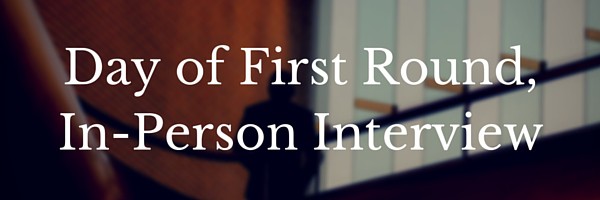
- All the hard work is done, now it's just delivery.
Don't obsess over your answers, don't rethink your experiences, just go in and do it. - Get there early.
Aim for 15 minutes early. Sometimes you hit traffic, maybe there's some other snag, but early is never bad. - Dress for the job you want.
If you're unsure how you should dress, err on the side of being too dressed up. If the company is your classic tech startup where everyone shows up in jeans and a t-shirt, interviewing in a suit will not disqualify you if you are a strong candidate. If the company expects a suit and you show up in jeans and a t-shirt, they will disqualify you as being unprofessional.
- Be yourself but sell yourself.

For more advice on the subject of interview attire, we reached out to Dr. Victoria Seitz, Professor and Chair of the Department of Marketing at California State University, San Bernardino:
1. Could you provide some brief advice on how students should dress for their first interview?
Students should put their best foot forward when dressing for an interview. If it is a professional position, the most accepted uniform for an interview is a suit, preferably a gray, black or navy suit. To accompany this, males should wear a long sleeve collared shirt and tie, socks in a dark color, and shoes that have been polished.
For women, a suit in black, gray or navy is also the best uniform for them. They will want to wear a blouse/shirt that is conservative, hosiery that matches their skin tone, coordinating shoes in a loafer or pump style with an inch heel but no higher than 2 inches. Shoes need to be polished.
Clothing should be clean and pressed and in good condition. Jewelry should be kept to a minimum with a wedding ring, for women one set of earrings, and a watch. Avoid heavy perfumes and colognes.
2. What is one common mistake many people make in dressing for interviews?
What is one common mistake – Overlooking the details, such missing buttons, stains on clothing, shoes in poor condition, hands and nails that are dirty, wearing too much make-up, no trimming hair or facial hair.
3. Do you have any additional personal appearance tips besides what the candidate is wearing?
Prepare in advance of the interview in putting your interview outfit together and go through a dress rehearsal so to speak. Additionally, besides what you wear, pay attention to your body language such as eye contact and hand movements. Do not stare the interviewer down but give about 50 percent eye contact.
Understand that when you step into someone's office you are on their turf and do not sit down until you are invited to do so. Moreover, brush up on your etiquette should you be invited to a luncheon interview so you can eat comfortably while answering questions. Finally, be sure to write a thank-you note after the interview to thank them for the time and to follow-up on addressing questions you felt weak in.
- Don't forget the portfolio.
This will let you take notes if you need to but more importantly, print out several copies of your resume and a list of relevant references. It's not uncommon for an interviewer to not have your resume, keep a few copies just in case. The same applies for references, if they ask you for references you can just hand them the list. - Remember personal hygiene.
The goal here is to avoid distractions. You don't need a fresh haircut but you do need to brush your teeth, shower, and clean yourself up. Avoid distraction. - Turn off your phone (or leave it in your car).
It probably won't ring and even if it did, it won't hurt your chance at the job if you're qualified… but it could throw you off. You don't need the distraction and you need to be sharp, don't let something so simple throw you off. - Be polite to everyone.
You should be polite to everyone all the time anywhere you are but be especially polite the moment you leave your residence. You never know who you will run into and these little things do leave an impression. Hold the door, say please and thank you, don't cut anyone off, politely wait your turn, be extra good. And smile. - Remember names.
If you're doing an on-campus interview and only need to remember one, you have no excuse. If it's at the company offices, you might meet a handful of folks. No one will wear a name tag, so try to remember their name using whatever tips or tools you need. I find that repeating it when I meet them (“Hi, Jim, nice to meet you!”)and then trying to use it again within a short period helps me remember names. - Be hydrated, use the bathroom beforehand.
Don't chug water but make sure you're hydrated so you don't get cottonmouth. Use the bathroom beforehand, especially if you expect multiple interviews, just to ensure you avoid interruptions.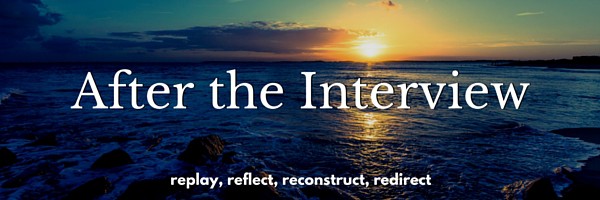
- Write a thank you note.
Write a thank-you note or email to every person you met, to thank them for their time and consideration. If something memorable happened in the interview, mention that too. Don't be long-winded or overly formal, the goal is just to remind them that you met and help you stand out a little more than the other candidates. And make it handwritten if you can, hardly anyone does that. - Steal this thank you note/email script.
Edit it however you'd like but the main pieces are all in this template:Subject: Thank you for your time [relative day of interview, like “yesterday” or “on Tuesday”]
Email Body:
Hi [interviewer's name],Thank you so much for meeting with me [relative day of interview]. It was a pleasure to learn more about the opportunity, the team, and the company – I'm excited for the chance to join [company] and [whatever the work entails].
(you can mention something that you discussed in the interview)
I look forward to hearing from you about the next steps and please don't hesitate to contact me if you have any questions,
Kind regards,
[Your Name]
[Your Phone Number] - Call a friend.
Call or talk to a friend about the interview. This will help you decompress but also get your mind thinking about the interview, how it went, what you did well, what you could improve, and take it all out of your head. If things went well, you can celebrate. If they didn't, talking about it helps you avoid obsessing over it. - Write down your notes for next time.
If, in thinking about the interview or talking about it with a friend, you come up with things you want to improve for next time, write them down in your notes. This ensures you won't forget for next time, which may be tomorrow or in weeks. - Celebrate a little.
It's important to celebrate little wins as much as the big ones – so after each interview, do a little something to celebrate. Don't make it a big thing, you didn't win anything, but it's important to recognize the hard work you've put in even if you didn't achieve the ultimate goal yet.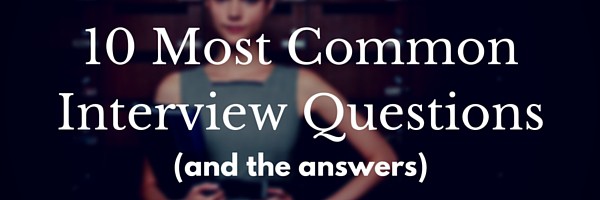
Before we get into the 10 most common questions, here are a few general tips on answering questions.
- The answer to the interview question isn't what the interviewer is after.
When an interviewer asks one of these common questions, the answer you give isn't the only thing they're after. It's often how that answer reflects on you, your preparation, and your understanding of the job and company. - Think aloud on those crazy analytical questions.
Ever hear those stories about how Google asks how many manhole covers there are in the world? Or Microsoft wondering how you could survive inside a blender if you were the size of an ant? When thinking of any answer, think aloud. The goal of the question is to understand how you approach the problems – there is no correct answer. Except the blender one… you hide underneath the blades. - If you bumble an answer or misspeak, try again.
With preparation, you probably won't… but we don't buy insurance because we think we'll need it, right? So, study some ways to recover from a bad interview and practice them. It's useful to have some of these strategies in your back pocket just in case the interviewer dozes off. - If asked a discriminatory question, try to redirect.
The law prohibits discrimination on “the basis of an applicant's race, color, national origin, religion, sex, age or disability.” Some states expand that to include discrimination based on marital status or sexual orientation. If you are asked one of these questions, try to figure out why they're asking and answer that question instead. Sometimes, especially with inexperienced interviewers, they're just making small talk, building a rapport, and not trying to learn something to make a decision. if you suspect discrimination is at play, consider reaching out the EEOC. - If the question seems unclear, rephrase it.
Sometimes it's hard to understand what the interviewer may be asking you… or it could be interpreted several ways. If you get one of these, rephrase the question and ask the interviewer to confirm that's what they wanted. It can also buy you some time to think of an answer if you've never faced this question before. - Check in with the interviewer after you've answered.
It's valuable to check in with the interviewer after you've given a particularly long answer to confirm they received a satisfactory response. It never hurts to make sure and if you didn't answer it, this gives you another shot at it. Here are the questions: - Tell me a little about yourself?
This is meant as an icebreaker but it's so open-ended and so clearly without purpose (other than starting the conversation) that it's easy to lose yourself and start rambling. In answering, try to talk about your educational history, relevant skills, and accomplishments. Relevant = work-related. Remember to sell yourself but keep it brief. Share commonalities you may have with the company, the interviewer, or the role. - Why should we hire you?
Your research on the job, the culture, and the company will be invaluable in answering this question. You will want to be specific and explain why the company is looking to fill this job and why you're uniquely suited to do the job. If you have a success story, where you solved this problem or a similar one, bring it up now. Specifics are key in this answer and remember to sell yourself – they are asking you to sell yourself with this question. - What is your greatest strength?
This question gives you a chance to take your knowledge of the job, the one characteristic of that job that would separate you from others, and highlight it. You're not explaining your greatest strength, you're picking the one strength you can demonstrate (or share in a story) that is of greatest value to someone in that job. This is a red herring question that isn't meant to find out your greatest strength, but whether what you say is your greatest strength matches the need of the job. - What is your great weakness?
This question allows you to share a time when you recognized a weakness and made specific steps to address it. Make sure this weakness is not a core requirement for the job, pick another one. It's also not a time to share a faux weakness (I'm too hard working! I'm too detail-oriented!). We all have things we're not great at so how did you recognize this weakness, what steps did you take towards improving it, and where is it today? - Why do you want to work for this company?
This is the ideal time for you to share what you know about the company and how that matches your wants and needs. Perhaps the mission of the company meshes with your desire to do XYZ because of some underlying passion you have for XYZ. These answers illustrate your long term commitment to the company. - Why did you leave your previous job?
If you left voluntarily, explain why while being complimentary to your previous employers. It's common for people to want a new challenge, there might have been something specific as this company that attracted you, and sometimes there are other forces at play (you had to move, etc.).If you were let go, be honest about why you were let go but avoid sharing characteristics that are core needs of the new role. More importantly, explain what steps you took to improve those areas so it wouldn't happen again. If the reasons were outside of your control (downsizing, a weak economy, etc.), those are perfectly safe answers to share. - What was your biggest challenge and how did you overcome it?
Much like the greatest weakness answer, the interviewer is trying to understand how you tick. The specific challenge isn't important but your response to that challenge is very important. Try to think of a challenge that applies to the new role, leverage the STAR answering method and make sure you remain positive about the whole story. - Where do you see yourself in five years?
This question gets to your long term planning, organization, ambition, and understanding of the culture of the company. If you enter a massive corporate company and expect to be President in five years, it shows a fundamental misunderstanding of how things work. If you explain that in five years you want to learn more about the business, move into management or some other higher tier, and otherwise illustrate ambition and long term commitment but not a “head in the clouds” disconnect, you'll be great. - What are your salary needs?
One of the trickiest questions in the book but one that I feel the answer my friend Ramit Sethi gives is solid gold (his guide goes into salary negotiation, not just answering this interview question). The gist of the answer is to deflect it because it's not relevant in the interview process and you're under no obligation to share it. You do this by explaining you'd be happy to share salary at a later time but for now you want to see if you can add value to the company and whether it's a good fit.If you live in Massachusetts, starting July 2017, it will be illegal for an employer to ask you about your current salary. - Do you have any questions for me?
Have a few questions ready for this inevitable question at the end of your interview. My favorite ones are those that are about the company, the culture, or the group you might be joining. Here's one from my friend Elizabeth that stands out – “For me to be considered successful in my first year on the job–what would I have accomplished?” It shows a long term interest on your part and an idea of expectations. If you feel the interview went particularly well or poorly, you could ask them how the interview went and whether they had any reservations about you. It could be a chance for you to address it now or something for your improve or build upon in the future. Never say you have no questions!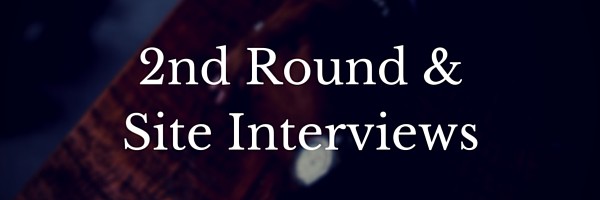
- You are now in a far smaller pool of qualified candidates.
The second-round interview is where you will demonstrate that you are the perfect candidate for the job. At a large company, the first in-person interview will have been with a hiring manager or someone in their human resources department. The 2nd round will be one or a series of interviews where you will talk to people who will eventually work with or for. - Do everything you did for the 1st interview, now brush up on your technical skills.
Since you'll most likely be speaking with future co-workers, you might be asked to demonstrate some of the skills you listed on your resume. As a computer science graduate, I wrote pseudo-code to demonstrate I could think like a developer and ask the right questions before I gave the best answers. Whatever skills you'll need in the future to do the job well, expect to show them you didn't just add it to the resume. - Expect different types of interviews.
Your first was probably one-on-one, now you might have panel interviews (where several people speak to you at once). You'll be asked similar questions, perhaps even more probing ones about those “challenging experiences” but it'll be the same things. - Expect to ask a lot of your own questions.
Since they are trying to find a good fit, you should be looking too. Be ready to ask a lot of questions about the company, the work, lifestyle, culture, and all those other questions you've always wanted to know but didn't know who to ask. Here's a good list of questions from Ladders. You will want to know all of this before you decide if they offer you the job! - Expect to talk about compensation.
But don't bring it up first! You will probably see the hiring manager or HR person again and the salary will be a subject. Bone up on salary negotiation. - Don't leave without discussing next steps.
In that same discussion with the hiring manager or HR person, ask about next steps if they don't offer it up first (chances are they will). They may offer you a job right there but you won't have to decide, you'll want to see the total compensation package before you make a decision. That includes all your benefits, like retirement benefits, sick leave, vacation, etc.
- If rejected, try to find out why.
90% of the time, you won't get a straight answer. It's not that people don't want to be honest, it's that most people don't want honest feedback. You'll get a lot of “another candidate was a better fit” but sometimes you'll get candid feedback, even if couched in comforting language. When you do, try to address those issues in future similar interviews. Also, failure is part of life and learning to bounce back is crucial — you'll go on a lot of these interviews and won't get every job. This video by my friend Thomas at College Info Geek is great at addressing how to bounce back from failure: - If offered a job, congratulations!
Smile! You got the job offer!
I hope these tips help you secure your dream job – if you have a great tip not listed here already, let me know!
I also want to thank some of the fine folks who helped me with this article including Elizabeth Weber Edwards, Karinne Lindner, Sonja Wall, Tracy O'Dowd, and others who declined to be recognized. I couldn't have done it without you!
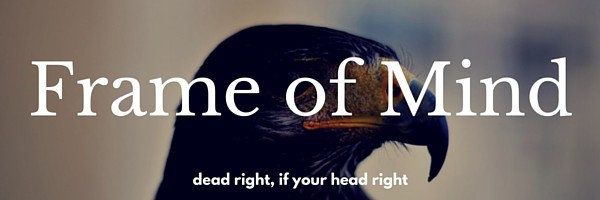
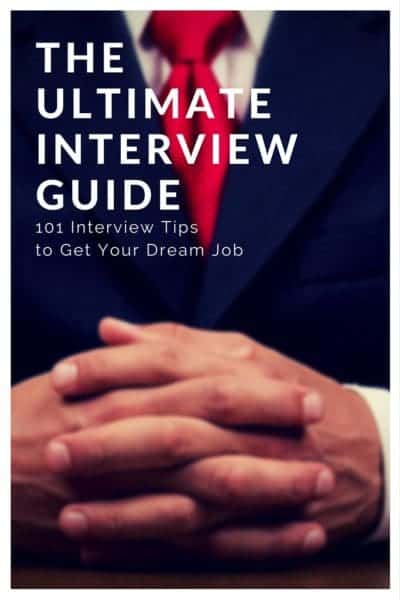




Wow, Jim! This really is an epic interview guide. I love your advice about being mindful about your body language. It’s definitely not something that comes naturally. I’ve actually tried Amy Cuddy’s power poses in the bathroom for 10 minutes before an interview or important meeting. It sounds silly, but it really helped me feel more confident.
Great suggestion — I love Amy Cuddy’s TED talk and added it to the post to help people understand the importance of body language in shaping our own mind!
Thanks, this is a great guide! I think a lot of people underestimate the importance of body language even though that it contributes to the majority of your communication. I think acting classes really help with developing mindfulness towards body language since actors train to be aware and to manipulate their movements.
Wonderful tips on helping those finding their way through the job market. I have shared this with my students to see what they think about the tips and how they can implement them. I also asked for feedback so maybe they can give me some books on the ground suggestions as they go through the trenches of finding their next opportunity.
Thanks Joe! I’d love to hear what they say!
What a great resource Jim! #82 stands out for me. Thank everyone. You never know who might be part of the decision making process. The receptionist who greeted you might be asked their opinion. Send them a note too.
Thanks Brian! It was a collaboration with a lot of folks and I think the list is as comprehensive as the scope allows. I think in the future I want to do something similar for other aspects of career building, but for now this interview guide will act as the beacon. 🙂